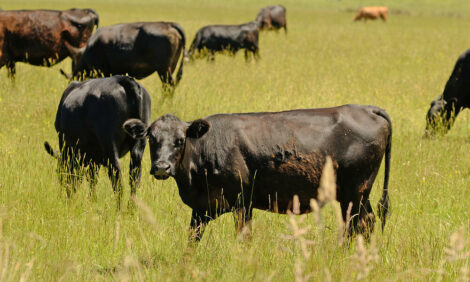



RABDF, NFU praise move by Government to hold red diesel levy for agriculture
UK - The Royal Association of British Dairy Farmers (RABDF) and National Farmers Union (NFU) have welcomed the 11 March announcement that the red diesel subsidy will remain for the agricultural sector.The Association had previously sent letters to Secretary of State for Environment, Food and Rural Affairs, George Eustice, as well as Mr Sunik and the Treasury, warning them of the implications removing the subsidy would have on dairy farmers.
The news means the duty levied on red diesel will remain at 11.1p, compared to 57.7p for standard fuel.
RABDF Chairman Peter Alvis said: “We are delighted the Government has listened to industry calls to keep the subsidy on red diesel in place for the agricultural sector.
“Although agriculture only accounts for 7 percent of the total lower rate fuel use in the UK, the knock-on effects would have been felt right throughout the supply chain- including increased costs for consumers.”
Mr Alvis also welcomed the 2p/litre drop in red diesel prices seen at the start of the week. He said:
“This week could have painted a very different picture for British dairy farming, but thankfully, the levy coupled with a drop in prices is the best outcome we could have wished for.”
NFU President Minette Batters said: “The most significant decision today for British farmers is the announcement to retain the relief on red diesel. This is absolutely crucial and we are pleased to see the Chancellor has acknowledged our concerns. Red diesel is the primary fuel to run the majority of agricultural machinery and it is incredibly important for the farm businesses that produce the nation’s high quality and affordable food.
“Changes to this duty could have virtually doubled fuel costs for farmers and with no current alternative fuel for agricultural vehicles, this would have left farms immediately uncompetitive with many other countries who continue to provide lower fuel duty for their agricultural industries.
“This lower fuel duty on red diesel recognises its importance to farm businesses, their ability to produce food for the nation and the fact this machinery is mainly used off-road on farms.
“Many of these farm businesses have experienced the wettest winter in recent memory and thousands still find themselves under water. We are really pleased to see the increase of £5.2 billion into flood defences, particularly the £120 million for the repair of damage caused by this winter’s storms. It’s crucial a significant chunk of this is spent on helping repair defences in rural areas.
“I would urge the government to recognise and reward farmland that is used to store floodwater. Any flood management policy needs to reward farmers for this vital public service.
“The weather this winter is yet another example of how farmers are on the forefront of climate change and the NFU has an ambitious goal for agriculture to reach net zero by 2040. We look forward to seeing more detail on the new £640 million nature for climate fund and what role is seen for farming and food production within this, alongside playing its role for the environment.
“The NFU called for an increase to the structure and buildings allowance in its Budget submission and this increase will deliver more effective tax relief for farm buildings. It will go some way to supporting farms investing in modern, efficient infrastructure which could help to improve productivity and deliver our net zero ambition.
“We have seen in recent times a significant increase in fly-tipping on farms. The NFU has been calling for the government to invest in new approaches to tackling this crime and the extra funding to tackle this blight on our countryside is welcome.
“Finally, we recognise the government’s commitments to helping small businesses with the impacts of the coronavirus. The commitment to cover statutory sick pay costs, providing business rates relief for many small businesses and mobilising banks lending for SMEs will help to provide resilience and support cash flow in these difficult circumstances.”


